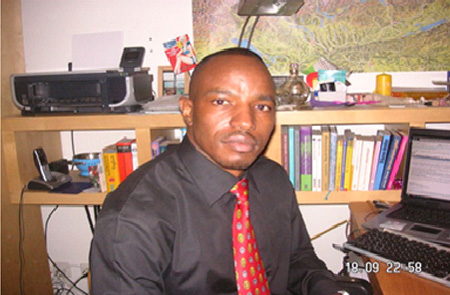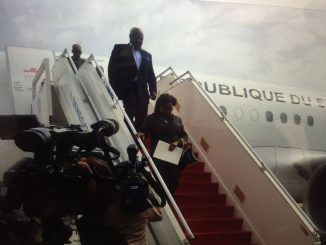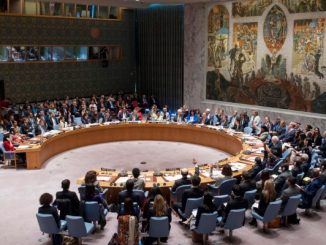
Understanding the Perennial Significance of Peace and Conflict Studies
Never Take Peace For Granted!!!!!
Author: Retired Captain Saio S. Marrah [Expert in International Relations and Security)
Deputy Director General [Central Intelligence and Security Unit]
According to the 2017 Global Peace Index Report, Sierra Leone was ranked 1st or the most peaceful country in West Africa whiles on the African Continent, we were rated as the 3rd most peaceful and Globally the 39th. Sierra Leone did not achieve this just like that. The glory is ours (all Sierra Leoneans and our partners) but who are behind scenes and at the frontiers in achieving these enviable positions at the sub-regional, regional and global levels? Security is dynamic, it is evolving and new players are emerging. There are emerging and imagined threats which need different players at different times to tackle (threats) effectively. Not just the Security Sector family (Intelligence, Military, Police, Judiciary et al) but students and scholars of Peace and Conflict studies as well.
Whereas Emmanuel Kant propounded the concept of perpetual peace, Benito Mussolini’s “philosophical and doctrinal view point” of the said subject matter (perpetual peace) suggest that “war is to man what maternity is to a woman” and therefore concludes by abjectly denouncing perpetual peace, hence in his own words….. “I do not believe in perpetual peace”. In similar vein, Friedrich Von Bernhardi succinctly maintains that “war is a biological necessity” which is why Francis Meehan underscores Friedrick’s argument by ascertaining that, “men are at war with one another because each man is at war with himself”. It is therefore indicative that, peace must be earned and can never be taken for granted.
As conflict is part of our shared human experience, and inevitably commonly exists within our minds, as well as in our families, institutions, local and global communities; makes the study of Conflict, War and Peace Studies a perennial field of study which I will conveniently argue cannot be debunked by any academically grounded scholar. Peace and Conflict studies as an interdisciplinary program deals with conflicts ranging from the interpersonal to the global level.
This suggests that, to understand the dynamics and crescendos of peace and conflict one need to prudently evaluate and critically assess your personal being and surrounding and honestly ascertain how the field of study has contributed to the creation of more justice and peaceable conditions in the home, the work place, and the world at large.
Students and Scholars of Peace and Conflict Studies explore theories and concepts that serve as analytical tools to better handle traditional, contemporary and evolving threats. This is important because, issues of threat, insecurity, danger, vulnerability and the like may be real and most often can be socially and culturally constructed. The fundamental question is how do policy makers know which threat or insecurity is real or constructed?
Peace and Conflict Studies therefore identifies and analyses threat, insecurity, violent and nonviolent behavioral patterns as well as the structural mechanisms and their attendant modus-operandi in tackling such issues; with a view towards understanding those processes which lead to a more desirable human condition.
Peace and Conflict Studies is a multi-disciplinary field encompassing aspects of albeit not limited to the following: philosophy, political science, geography, economics, psychology, sociology, international relations, history, anthropology, religious studies, and diplomacy.
Peace and Conflict studies is both a pedagogical activity, in which teachers transmit knowledge to students; and a research activity, in which researchers create new knowledge about the sources of conflict which can direct informed policy decision in a country and international level. The relevance of this assertion is pragmatic hence Peace and Conflict studies entails understanding the concept of peace which is defined as political condition that ensures justice and social stability through formal and informal institutions, practices, and norms.
Scholars working in the areas of peace and conflict studies have made significant contributions to the policies used by non-governmental organisations, development agencies, international financial institutions, and the UN system, in the specific areas of conflict resolution and citizen diplomacy, development, political, social, and economic reform, peacekeeping, mediation, early warning, prevention, peacebuilding, and state-building.
According to John F. Kennedy, “the mere absence of war in not peace” – for this reason, the preamble to the Constitution of UNESCO clearly states that, “since wars begin in the minds of men, it is the minds of men that the defenses of peace must be constructed”. For this reason, it is judicious, prudent and wise to support peace and security practitioners, scholars and student; because peace and security are the bulwark of development and prosperity.



